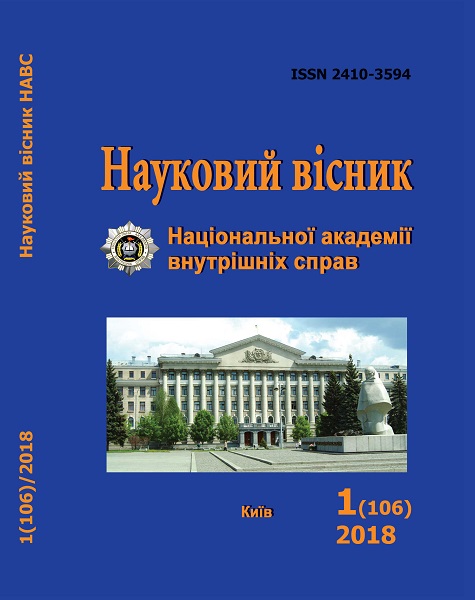Military Tactics of the Antique World as a Present of Development of Modern Operative and Sourcing Tactics
Keywords:
historical experience, ancient epoch, Rome, state, empire, military art, operational-search tactics
Abstract
The article is devoted to the genesis of operational-search tactics in the context of the historical formation and development of military art of the period of the antique age. In the process of analyzing the scientific work of domestic and foreign scholars it became clear that during the existence of the Roman Empire
(the empire), under the influence of military art (general tactics), the main provisions of intelligence and counter-intelligence activities, which can be found in the existing regulatory legal acts regulating operational search activity.
Downloads
Download data is not yet available.
Abstract views: 125 PDF Downloads: 376
How to Cite
[1]
Pavlenko, S. 1. Military Tactics of the Antique World as a Present of Development of Modern Operative and Sourcing Tactics. Scientific Herald of the National Academy of Internal Affairs. 106, 1 (1), 36-48.
Issue
Section
Theoretical and practical aspects of legal science
- Authors reserve the right to authorship of their own work and transfer to the magazine the right of the first publication of this work under the terms of the Creative Commons Attribution License, which allows other persons to freely distribute published work with mandatory reference to authors of the original work and the first publication of an article in this magazine.
- Authors have the right to enter into separate additional agreements on non-exclusive dissemination of the work in the form in which it was published in the journal (for example, to post an article in the institution's repository or to publish as part of a monograph), provided that the link to the first publication of the work in this journal is maintained.
- The journal's policy allows and encourages the posting of articles by authors on the Internet (for example, in electronic storehouses of institutions or on personal websites), both before the submission of this manuscript to the editorial office and during its editorial processing, as this contributes to the creation of a productive scientific discussion and positively affects the efficiency and dynamics of citing the published work.




